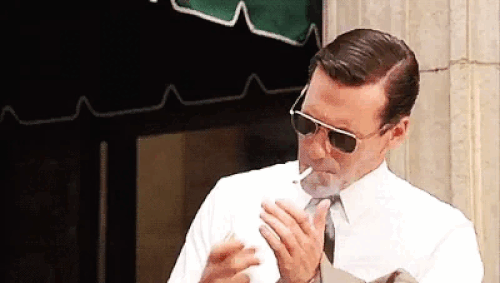So, at the university I go to, there is a magic club. Well, there used to be one, at least. It has been standing for a few decades, but it finally breathed its last breath last year, and now the club is no more.
I want to bring it back, to make a new magic club that will take the place of the one before it. Partly because I love magic, partly because I might be the first woman to run a university magic club in the history of humanity, but mostly because I know that if I don't do it, someone else eventually will. And if all my history knowing magicians is to say anything about it, the club that gets created will almost certainly teach its members the wrong lessons when it comes to being an amateur magician.
So, for the sake of all of the women these men will ever meet, I want to teach the beginners joining my club how to perform in a Social Magic style. To teach them to be creative, casual, and personal with their magic, instead of being, y'know, all the things that magicians normally are.
You've written before about how to transition from a traditional magic style to a social magic style, but I'd like to ask you on advice on how to make Social Magic be the first thing someone learns. What would you say I need to focus on teaching if I want to take someone just learning their first few tricks and guide them towards becoming an actually half-decent social magician?
If you have any advice at all on how to go about this, I'd be very grateful.
PS - How would you feel about the idea of this magic club becoming the first "Official" "ring" of the GLOMM? —JF
I think that’s a worthwhile goal, but I think it’s something that will be very hard to achieve. What I mean is, I think it will be difficult to just happen to find a group of people at your school who are interested in the social magic style of performing.
It would be like saying, “I want to start a karate school. But I really want to appeal to people who have an interest in self-defense and self-discipline.” When really, what most people get into karate for, is because they want to hit people and break boards.
If I had to guess, I would say that about 15% of people who have an interest in performing magic, have an interest in presenting it in a Social Magic/Audience-Centric style.
The other 85% are people who want to perform in a “traditional style”—where the focus is on them. They don’t care about creating more natural moments, or shifting the focus off themselves. That’s the opposite of what they want. They want to create moments that stand out of them exhibiting a power or skill that makes them seem special.
And of the 15% who do like the social style, most of them probably started out in the other group. They just happened to have the emotional intelligence and social IQ to realize that you’re not really going to “impress” people by performing magic tricks in the long term.
So, I think any social magic groups that ever form will probably end up being sub-sets of larger magic groups which perform in a more traditional style.
If you wanted to push things in the social direction, then I think you need to make performing a central focus of the group. And not performing for each other. Most magic groups I’ve been exposed to consist of guys swapping secrets and performing for each other. They are, in all reality, ANTI-SOCIAL magic clubs.
So I would make it an element of the club that you get out and actually show people stuff when you get together. And I’m not saying you go out to a bar and say, “Hey everyone, we’re the University Magic Club, and we want to show you some tricks!” Don’t portray yourself as a “group of magicians,” but just a group of friends who are out. And then let one of the members lead an interaction with someone nearby. You guys can be bystanders, or stooges, or wing-men, but let this person take the lead. Then afterward, you can break it down with each other. Maybe it came off as too scripted. Or he wasn’t clear enough in his instructions. Or maybe it was perfect, but he didn’t let the moment breath. Having some outside parties to secretly help with the performance and critique it could be incredibly beneficial.
That’s probably the only real advice I could offer: If you want to steer a club in a social direction, then you need to make performing socially (for people outside the group) an element of the club.
And yeah, you can become the first “official” GLOMM Lodge.
In fact, anyone who can get three magicians who aren’t sex criminals together in a centralized area can be an official lodge. If you want, you can inform me who your group consists of, and I’ll let you know your official lodge number.








